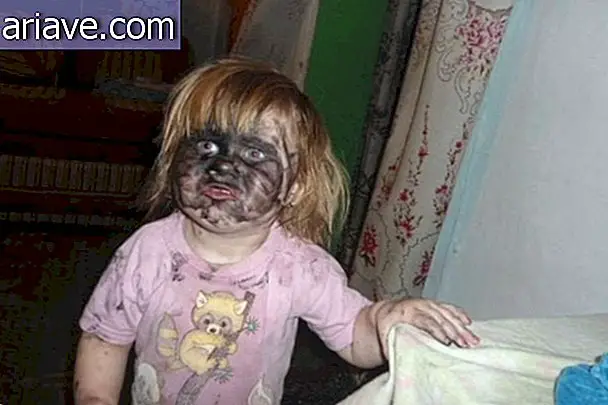10 Incredible Cursing and Swearing Facts
Who never cursed, let them throw the first stone. No matter how calm and controlled you are: once in your life you uttered profanity in an attempt to blot out all your indignation, annoyance, unhappiness, anger and so many other feelings that can be expressed by ugly names.
Even though our parents, grandparents, and others who are part of our upbringing have said that we couldn't do that, it is inevitable that someday an ugly word or expression of anger will come out. Not even a mere "son of a bitch" tapping his little toe in the corner of the bed.
If your life is not an eternal dubbing of American movies, surely you have already uttered a profanity. Anyway, if you worry about it, it's interesting to know that there is historical and scientific data that shows how cursing is simply fascinating. That's why we present 10 incredible facts about cursing and curse words. The publication is based on an article from the List Verse website.
10. Legitimate Pain Relief

No wonder we feel like cursing the world when something causes us pain. According to a study at Keele University, this act acts as a legitimate relief from such agony. Dr. Richard Stephen, from the institution's Psychology department, conducted an experiment with 64 volunteers who had to keep their hands submerged in ice water for as long as they could.
While some were advised to shout profanity and curses, others should say nothing. Those who were able to release the “beautiful words” of relief not only endured longer with their submerged hands, but reported less pain than the other participants. The idea for the study came when the researcher was in the delivery room accompanying his wife, and she uttered what he called an impressive chain of profanity during the painful process of giving birth.
9. The Story of John Taylor, Convinced Blasphemer

Englishman John Taylor has become a historical example of how dangerous blasphemy could be in other times. In the year 1676, Taylor was arrested for committing this act and uttering many unpleasant or unthinkable words for the time. In this case, at a time when offending or going against the thoughts of the Church was the same as going against all the beliefs of the population of the country, he suffered the consequences of having the habit of profaning his ideas.
Words become profanity in the human conception because they refer to something forbidden, a taboo, and some terms considered offensive in the 17th century are considered "off limits" to this day. However, the treatment of this kind of situation was very different, as people used to feel much more offended, and even if it was much more profanity, it turned out to be blasphemous.
Taylor was even interned before being tried to see if he was crazy, given the tenor of his ideas. As an example, after the trial, he had to pay a fine and was arrested until his behavior improved, but there are no reports that he was released at any later time.
8. We love politicians who speak bad words

At least that is what a study published in the Journal of Language and Social Psychology found. In this experiment, 100 participants were posted to read a blog post from a candidate for a supposed election. The postings, produced by the researchers themselves, which contained a few vulgar little expressions turned out to be better liked by people who were evaluating imaginary politicians.
Thus, these would-be candidates had a greater preference when participants chose who they would vote for. Profanity is emotional, so the conclusion was that expressing yourself in these terms gives the candidate a tone of informality and closeness to voters. It is as if politicians who speak bad words better understand people's feelings.
However, it should be noted that a limit could not be established for the amount of foul terms used. So there is no way to know if the exaggeration in name calling would cause an adverse outcome. And the finding is only valid for men, because the imaginary candidates of the survey, when expressing themselves with profanity, did not meet gender expectations.
7. The most obscene US state

Ohio is considered the most uneducated state in the United States, according to a survey by a specialist company in 2013. To find that out, they gathered recorded data from over 600, 000 previous year's telephone answering services and searched them. looking for two things: warmth and name calling. With the final compilation, they ranked the states by the degree of roughness presented, and Ohio was the big "winner."
6. Profanity in a foreign language
People often have frequent contact with foreign expressions that mean bad words or insults. Two studies on native language, a second language, and words considered foul have shown that humans have an emotional relationship with their mother tongue, so bilingual individuals end up cursing in any language other than their native language. One of the works was carried out by the University of Bangor in the United Kingdom and the other by the University of Warsaw in Poland.
5. Swearing and intelligence

A study by psychologists at the Massachusetts School of Liberal Arts and Marist College in the United States found that the larger a person's repertoire of profanity, the greater their vocabulary and knowledge in other areas. According to the paper, the people who were able to write the most rude expressions were the best at a later test. This finding runs counter to a mistaken popular belief, as citizens tend to believe that those who utter more profanity have limited vocabulary and intelligence, justifying the use of foul language.
4. The first bad word
Children are learning the “inappropriate” terms earlier and using them a lot more compared to previous generations. According to psychology professor Thimothy Jay, what you saw in the old days were the little ones going to school and learning bad words and curses there. Today the situation is different, as most children learn at home.

One of the reasons, Jay points out, is some hypocrisy of the parents themselves, who tell their children not to use such words but end up not dosing their verbiage in front of them. With a volume of rough terms used being also larger, little ones tend to repeat expressions even if they don't know what they mean. The two reasons for this are to attract attention to yourself or simply to like the way a bad word sounds.
3. The “swore a lot” syndrome
One of the many symptoms manifested by people with Tourette's syndrome may be the act of uttering profanity and cursing. However, it is not clear why this is occurring, and the suspicion is that it is part of the functioning of the brain. From research work done so far, scientists believe there is a special area in the human body's governing body for offensive and inappropriate words. Thus, it is understood that the region is hardly affected by any damage to the brain.

Our ability to quickly learn inappropriate vocabulary would also be justified for the same reason: the existence of a specific region of the head responsible for storing our repertoire of profanity. However, the fact that people with Tourette's syndrome use these terms more to express themselves is still a mystery to science.
2. Profanity is also diagnostic
Currently, some patients with mental disorders undergo tests in which they must recite the largest number of words in certain categories. The reason is to try to diagnose two conditions that have similar symptoms but different treatments: Alzheimer's disease and frontotemporal dementia (DFT).

The reason for this has not been known, but research has found that FTD patients have written a few bad words, while none of Alzheimer's sufferers have put the most famous foul words in certain letters. It is speculated that this feature also has to do with brain function and the regions affected by each disease.
1. The oldest swear words
A record found by Paul Booth, a researcher at Keele University in the United Kingdom, may indicate the earliest known use of a foul word as we know it today. 13th century legal documents bore a different nomenclature for an individual of the time: "Roger Fuckebythenavele." Analyzing the documentation, Booth became convinced that the second word is not the man's last name, but a less honorable expression.

That is, the "fuck" of the early part of the term probably means the same thing we know today. Therefore, the only fact that there is no way to ascertain is whether the term was an insult common to the time or part of any of the claims raised in court. Anyway, it is possible to see how we lack more knowledge about the use of profanity throughout history.
What kind of situation makes you swear more curses and curses? Comment on the Mega Curious Forum











